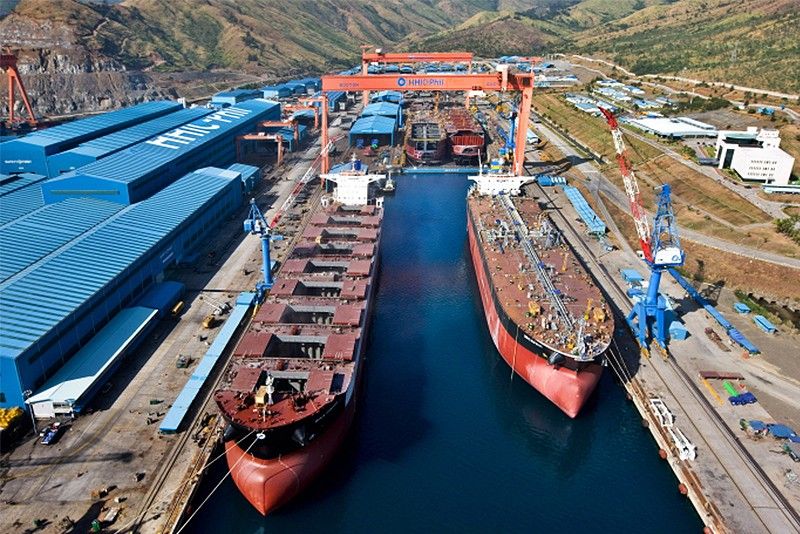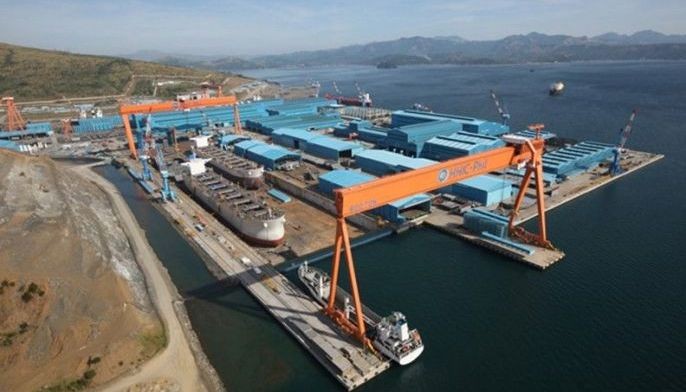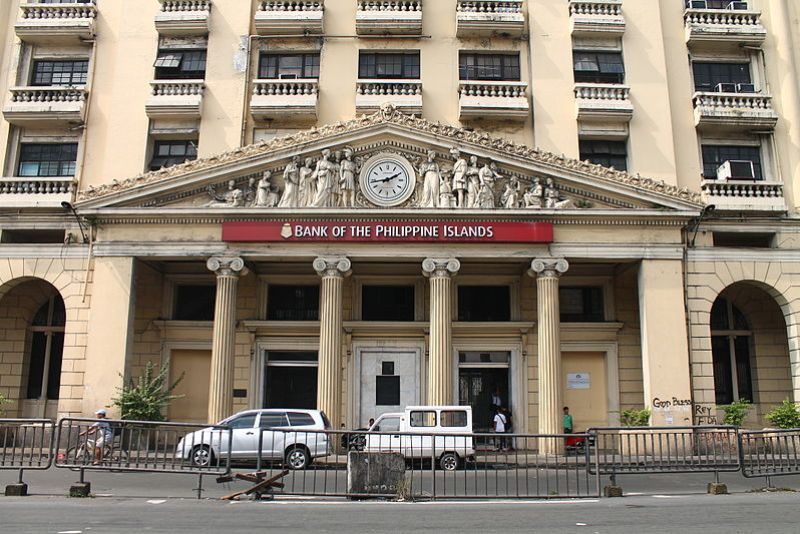Fitch Ratings: Hanjin default could ‘pressure’ banks’ credit ratings

MANILA, Philippines — The exposure of five Philippine banks to financially distressed Hanjin Philippines, which recently declared bankruptcy after it defaulted on over $400 million in loans, could put pressure on their credit ratings, Fitch Ratings said Wednesday.
Fitch Ratings is the second international debt watcher that flagged credit risks from the South Korean shipbuilder’s bankruptcy, which appears to be the biggest corporate default in Philippine history. An Olongapo City court on Monday approved rehabilitation proceedings for Hanjin Philippines as it struggles to pay $412 million in combined loans from five Philippine banks.
Hanjin reportedly owes $140 million to Rizal Commercial Banking Corp., $80 million to state-owned Land Bank of the Philippines, $72 million to Metropolitan Bank & Trust Co. and $60 million each to Bank of the Philippine Islands and BDO Unibank Inc.
In a statement, Fitch Ratings said it expects affected banks to incur additional provisioning on their exposures.
Fitch also said RCBC may report at least one quarterly loss which could imply “some risk of capital impairment” given that it has the largest exposure among the five banks.
Exposure of the three largest banks - BPI, BDO and Metrobank - is “more manageable relative to their loan books and pre-provision profits,” Fitch added.
“Local banks' loans to [Hanjin Philippines] are equivalent to only around 0.2 percent of system loans, but some banks have more significant exposure, which could put pressure on their ratings,” Fitch said.
“Risk mitigation, such as corporate guarantees and claims on assets, may help improve recoverability. The parent company's latest financial results show [Hanjin Philippines] in a net asset position and there is reported interest in its shipyard from Chinese companies,” it added.
“Nevertheless, recoverability is uncertain. The parent company failed in an attempt to sell [Hanjin Philippines] in 2018, and the amount and timing of any recoveries will depend on the rehabilitation plan, which may take time to negotiate and execute.”
Hanjin Philippines was established in 2006 as a subsidiary of South Korean shipbuilder Hanjin Heavy Industries and Construction Co. Ltd. Since 2008, the company has delivered a total of 123 vessels to clients across the globe, putting the Philippines on the map as the world’s fifth largest shipbuilder.
The troubled company’s woes came amid headwinds faced by the global shipping industry and financial issues at its Korean parent company.
Fitch rates larger banks at “BBB-“ — the minimum investment grade — while the mid-tier banks are one notch lower at “BB+.” A rating downgrade can jack-up the cost of borrowing in foreign currencies for the lenders should they tap investors abroad to raise funding.
‘Large impairments’
Moody’s Investors Service on Tuesday warned that credit ratings of the five Philippine banks are in danger due to the exposures, as this could mean higher credit costs and reduction in profit for them.
According to Fitch, some mid-sized banks in the Philippines have shown higher growth appetite than the large banks in recent years, driven by their ambitions of gaining market share.
Meanwhile, larger banks have also exhibited appetite for growth, but their larger capital bases, higher profitability and better access to capital and funding put them in a stronger position to withstand potential problems with large exposures, it added.
“We expect the Philippine economy to remain among the strongest-growing in Asia-Pacific in 2019, but asset quality could face further tests as the global economic backdrop grows less favourable, with mid-tier banks likely to be more at risk than the large players,” Fitch Ratings said.
“Aggressive growth increases the potential for banks to take on greater exposure to more vulnerable companies, which is a risk that Fitch incorporates in its Philippine bank ratings. However, further large impairments could lead us to reassess banks' risk standards and controls, which could be negative for the ratings.”
The Bangko Sentral ng Pilipinas earlier assured the public that the country’s banking industry remains strong as the bad exposure of big banks to the embattled Korean shipbuilder is “very negligible.”
- Latest
- Trending

































